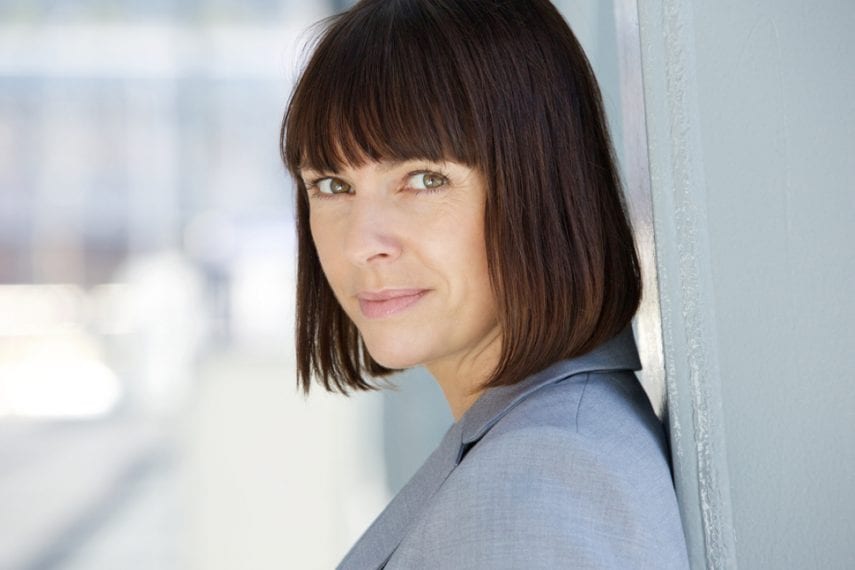Treating Complicated Grief After the Death of a Child

The grief after the death of a child can be unbearable and the loss will forever change you. However, if mourning becomes a constant state, you may be experiencing complicated grief. Complicated grief after the death of a child can be difficult to recognize and further complicated by the nature of the parent-child relationship. By seeking reconciliation through treatment, you can move through your grief and recapture your ability to live with joy and purpose while honoring the memory of your child.
When Clare’s son died, it was as if the world stopped. “I became frozen in this unbearable pain,” she says. “The stage of grief you’re supposed to move through—I cycled through the first four over and over and over again. I couldn’t get to the final step. And a part of me didn’t want to because moving forward would mean it was all over.”
Clare’s son, Daniel, was six years old when he died. For the next two years, his room would remain exactly as he had left it, his bed strewn with stuffed animals, an unfinished drawing on his art table. “I couldn’t bear to go in there, but I refused to let my husband touch anything. The thought that he wouldn’t be needing that room, that he would never finish that drawing, it was too much,” she explains. “I refused to accept that his absence was real, even as that absence came to define everything I did.” Indeed, the concept of absence became the nucleus of her existence as she simultaneously waited for him to return and was crushed by the knowledge that he would not.
Consumed by grief and refusing to engage with a world outside her memories, she stopped seeing friends. She stopped working. On the rare occasions when she did go out, she refused to drive past the sites that held strongest memories of Daniel—the playground, his school, the ice cream shop where they would go on Sunday afternoons. “I could so clearly picture him at those places and when I realized he was not there—and never would be—my heart would break as completely as the day he died. But, then, my heart broke every day anyway.”
To Clare, her emotional state was painful but she saw no alternative to it. “For a long time, I thought this was just the way it was and the way it was supposed to be. How can someone not feel this way? I became angry at my husband when his grief did not seem to match mine, when his life did not become a living expression of mourning the way mine did.” But in truth, Clare’s grief was not an inevitable state, but a destructive force that stripped her of the ability to live in a healthy way. As for many who experience complicated grief after the death of a child, moving out of that disabling space of mourning took time and the support of a community that understood the challenges faced by parents who lose a child.
Defining Complicated Grief After the Death of a Child
In some ways, complicated grief can be a difficult phenomenon to define. After all, it is normal for the loss of those we love to bring to the surface extraordinary pain and the process of grieving is perhaps the most universal of human experiences; there is a reason every culture around the world has developed rituals designed, in part, to help people cope with the overwhelming pain of death through both practical and symbolic means. As such, it can be difficult to know where “normal” experiences of grief end and “dysfunctional” experiences begin. This is particularly true for parents who lose a child.
Death will always bring grief to the living. However, in many relationships, death is a natural component of the lifecycle of both individuals and relationships; you can expect to experience the loss of your parents. You know that you may outlive your spouse. At some point, you will lose friends to death, however prematurely. But the loss of a child is different. It disrupts what we understand as the natural order of things, now that we live in cultures where childhood deaths are relatively rare. As such, parents often have few inner resources that are ready to handle such deaths—they go against your deepest conscious and unconscious expectations, and accepting this profound disruption can seem impossible. At the same time, our culture has evolved to be largely lacking in narratives regarding the deaths of children. Those narratives that do exist largely revolve around, “How can they go on?” Both internal and external beliefs may position the death of a child as bringing about unending grief, making unending grief seem not dysfunctional, but inevitable. In fact, the absence of such grief may be experienced as a betrayal of your child or bring about feelings of extreme guilt.
But while the loss of a child is never something to “get over,” it is something parents can move through to reach a place of emotional and behavioral functionality. As such, the specific context in which complicated grief arises may be different for parents than it is for someone who loses a parent, spouse, or friend, but it is in no way inevitable and there are universal symptoms that define it:
- Extreme and overwhelming sorrow and rumination
- Intense focus on things, places, and situations that remind you of your loved one
- Excessive focus on your loved one’s death
- Intense longing for your child
- Feelings of numbness
- An inability to accept death
- Loss of purpose and the ability to experience joy
- Inability to participate in daily activities, including self-care
- Social withdrawal
- Wishing you had died instead or with your loved one
- Feelings of guilt
- Turning to self-destructive behaviors to cope with your emotions
Your specific symptoms may be highly individual and it may change over time. Sometimes, these changes may be perceived as a sign that you are moving through the natural stages of grief, and that may, in fact, be true. However, while feelings may change or be articulated in different ways, complicated grief means that they don’t improve and the final stage—acceptance—never comes.
Complicating Factors of Grief for Parents
Just as recognizing the existence of complicated grief after the death of a child is made more complex by the unique relationship parents have with their children, grief itself can be made more complex by this relationship and its place within the larger milieu of the family. As explained by researchers in When Children Die: Improving Palliative and End-of-Life Care for Children and their Families, “Conflicting with current life-cycle expectations, the death of a child may be experienced as the death of the parents’ future dreams as well as creating a profound change in their present roles in functioning.” Thus, it is not just the physical death of your child that brings about overwhelming grief, but the death of an imagined future—the way you desired and believed your life would be is thrown into chaos and you may struggle to establish an identity outside of your grief or find purpose in your new circumstance. In other words, the loss of your child is also a loss of your self. At the same time, your family dynamics may be deeply disrupted as your child’s death as your roles shift and you must negotiate each individual’s mourning process.
One of the most painful relationship disruptions for parents after the loss of a child is often that which they have with their partner. Of partnered parents who have lost a child, about 30% of them report “having more negative feelings toward their spouse since the death” and “about the same proportion have considered divorce after the death of a child.” In many cases, this is due to the complicated and overwhelming emotions many experience after such death, including anger, and difficulties regulating and communicating these emotions. Disparities in grieving processes and perceived intensity of grief can also play a significant role. According to The Center for Complicated Grief at Columbia University:
A bereaved couple may find themselves unable to support each other after a painful shared loss. Their different ways of grieving may seem jarring to each other. One parent may long to talk about the child and their feelings, while the other parent may feel determined to avoid these very discussions. Conflicting needs can deprive a couple of the support they need from each other causing stress in the relationship and adding to the pain of the loss.
While this may affect any couple, it may be particularly likely in cases where one or both parents are experiencing complicated grief due to the emotional and functional challenges brought on by the condition. With such conflicts forming a schism between you and compromising your ability to think, feel, and behave in healthy ways, complicated grief often becomes a destructive force within the very relationships that should act as a place of comfort and connection.
1 in 5 Americans Will Struggle with Complicated Grief
Learn to Cope with Loss in a Safe Environment
Finding Reconciliation Through Treatment
Parents who experience complicated grief after the death of a child often feel trapped between the unbearable weight of their grief and a reluctance to release themselves from that grief. After all, if grief is an expression of love, what does it mean if you stop grieving? What does it mean to accept your child’s death or to experience joy and purpose after a profound loss? Will moving through your grief mean moving away from your child’s memory? Will it mean a loss of those memories, a betrayal, a lack of love?
These are painful questions that can bring up intense fears. However, the depth your love is not proportionate to the duration of your mourning and healing does not mean an erasure of memory or disloyalty. Rather, seeking treatment for complicated grief allows you to re-contextualize your loss and release yourself from being consumed by it, giving you the ability to restore functioning and move toward healthy ways of honoring both yourself and your child that do not compromise your ability to live. Harnessing your inner resilience is not a lessening of love, but an expansion of loving relationships, including the relationship you have with yourself.
By connecting with a treatment provider who will help you explore your memories, feelings, thoughts, and behaviors, you can come to more fully express and understand your experiences while creating strategies for coping in meaningful ways. This includes acknowledging and processing the loss of your imagined future while discovering new dreams for yourself. In addition to individual treatment, many people who experience complicated grief find that therapy groups are an invaluable part of the healing process, giving you the opportunity to share and bear witness to others’ healing journeys as they bear witness to your own. Recognizing that you must not carry your pain alone and that you can be buoyed by others can be a profoundly transformative experience that can help you break down internal barriers to reconstitution and find healthy ways of honoring your child’s memory. Surrounded by deep, compassionate support, you can find reconciliation and reconnection with the world around you and create a new foundation for ongoing growth and wellness.
When someone is struggling with complicated bereavement, family and couples therapy is often one of the most important parts of treatment. With the guidance of experienced clinicians who understand your complex struggles, you and your family members can come together to more fully process your mourning and address any conflicts that have arisen in the wake of your loss. By embarking on this journey together, you can come to more fully recognize each other’s needs and find ways to meet them in order to nourish better, more loving, and more fulfilling relationships. Together, you can move toward stronger bonds and learn how to incorporate your memories of your child in ways that nurture you.
The loss of a child will never be simple. You will never live without their memory, and you should never have to. But there is life beyond loss, and you deserve to live it with grace, purpose, and joy.
Bridges to Recovery offers comprehensive treatment for people struggling with mental health disorders as well as co-occurring substance use disorders and eating disorders. Contact us for more information about our renowned Los Angeles programs and how we can help you or your loved one start the journey toward restored wellness.






